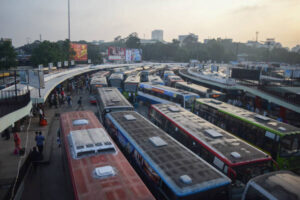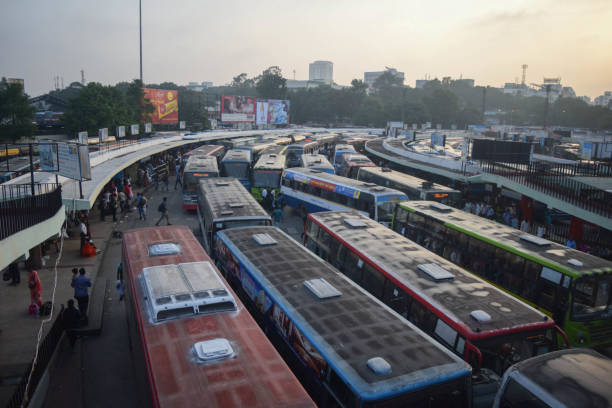Why Travel Buses Are Registered in Arunachal Pradesh and Nagaland
 Private buses, seeking to circumvent road tax obligations to the states of Karnataka or Tamil Nadu, resort to registering in distant regions such as Nagaland or Arunachal Pradesh. This practice is unequivocally illegal, as per the clear provisions of the law. According to regulations, when a bus operates between Karnataka and Tamil Nadu, it must be registered in the state where its operational base is located.
Private buses, seeking to circumvent road tax obligations to the states of Karnataka or Tamil Nadu, resort to registering in distant regions such as Nagaland or Arunachal Pradesh. This practice is unequivocally illegal, as per the clear provisions of the law. According to regulations, when a bus operates between Karnataka and Tamil Nadu, it must be registered in the state where its operational base is located.
Regrettably, this illegality thrives due to collusion between bus operators and the police and Regional Transport Office (RTO) staff in both Karnataka and Tamil Nadu. For a nominal sum, these officials willingly turn a blind eye to the blatant violation of the law, perpetuating a widespread scam.
The geographical disparity between the actual operations in Karnataka and Tamil Nadu and the purported registration in far-flung places like Nagaland or Arunachal Pradesh raises significant concerns. It becomes nearly impossible to verify the authenticity of bus registrations in these remote regions, which are closer to Hong Kong than to the bustling cities of Bangalore or Madras._
The persistence of this scam can be directly attributed to the connivance of corrupt officials within the police and RTO systems. In exchange for relatively small bribes, these individuals choose to ignore the legal violations, allowing bus operators to evade road tax payments to either of the two states.
The implications of this malpractice extend beyond mere tax evasion. If stringent measures were implemented to clamp down on this scam, the flow of bribes to the police and RTO officials would naturally diminish. Consequently, bus operators would face increased scrutiny and accountability, potentially dissuading them from continuing this unlawful practice.
What is particularly disconcerting is the complicity of certain unscrupulous businessmen, who, in various capacities, support and aid these illegal activities. The collusion between corrupt officials, political entities, and certain segments of the business community underscores a systemic issue that operates at the expense of the common people of India.
While concerns about external threats, such as a Chinese invasion, may be on the national agenda, this situation emphasizes that a more insidious enemy exists within the country. The real threat stems from the pervasive corruption of officials and the unholy alliance between them and unprincipled businessmen, all of whom exploit the system for personal gain at the cost of the welfare of the Indian populace.
Travelled to Hampi: hindu holy village in Karnataka, India

